Alt-Ac & Ac-Adjacent Careers for Environmental Humanists
Thursday, October 20, 2022
2pm PT / 5pm ET
Via Zoom
Please join us on Zoom for our third and final 2022 professional development workshop for ASLE graduate students. This workshop will focus on careers for environmental humanists both outside of academia and academic-adjacent positions. Participants will hear from fellow graduate students as well as Ph.D.s about the work they do, skills from their degree used in their current position, tips and strategies for preparing job materials, and more.
Moderated by Lisa Fink, ASLE Senior Graduate Student Liaison.
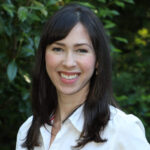 Featured Guests:
Featured Guests:
Hayley Brazier (she/her) is a Ph.D. Candidate in the Department of History at the University of Oregon and the Curator of Natural History at the High Desert Museum in Bend, Oregon. Her research and experience are situated at the nexus of environmental history and public history. Hayley’s dissertation examines the historical development of seafloor technologies along the northeast Pacific Ocean bottom. She will defend her Ph.D. in early 2023.
 Dr. Lindsay Garcia (she/her) is the Assistant Dean of the College for Junior/Senior Studies and Recovery/Substance-Free Student Initiatives at Brown University. She is also a socially-engaged artist, scholar, and teacher. She received her Ph.D. in American Studies from William & Mary and her M.F.A. in Visual Art from Purchase College, State University of New York. Her advising, research, and artwork employ a queer, feminist, and social justice-based approach. She is currently working on her book manuscript Infestation Identities, which explores the metaphors and materialities of the relationship between pest animals and humans in the context of race, sexuality, and American visual culture. Garcia has published her research in academic and art world publications and exhibited her artwork internationally at museums, galleries, and film festivals.
Dr. Lindsay Garcia (she/her) is the Assistant Dean of the College for Junior/Senior Studies and Recovery/Substance-Free Student Initiatives at Brown University. She is also a socially-engaged artist, scholar, and teacher. She received her Ph.D. in American Studies from William & Mary and her M.F.A. in Visual Art from Purchase College, State University of New York. Her advising, research, and artwork employ a queer, feminist, and social justice-based approach. She is currently working on her book manuscript Infestation Identities, which explores the metaphors and materialities of the relationship between pest animals and humans in the context of race, sexuality, and American visual culture. Garcia has published her research in academic and art world publications and exhibited her artwork internationally at museums, galleries, and film festivals.
 Dr. Taylor McHolm (he/him) is the Director of the Student Sustainability Center at the University of Oregon. In this role, Taylor develops student leaders, helps facilitate sustainability projects in and around campus, and develops programming to meet student needs. He received his Ph.D. from the University of Oregon’s interdisciplinary Environmental Science, Studies, and Policy program, with a focal department of English. His published research addresses representations of environmental justice and the racial components of the Anthropocene. In all areas, his work and research prioritize the intersections of sustainability, environmental justice, social equity, and cultural production. He occasionally second guesses his decision to eschew the professorate, but he likes not working on weekends or at night or on random Tuesdays when he’d rather surf, climb, or go mountain biking. His wife has a great career and fully supports his not having uprooted her and making her change jobs. Together, they have two small children who are more impressed with his ability to make pancakes and be a monster than they are with his keen insights into the ways non-dominant forms of environmental representation resist the settler colonial roots of American environmentalism. They also like “Bluey.”
Dr. Taylor McHolm (he/him) is the Director of the Student Sustainability Center at the University of Oregon. In this role, Taylor develops student leaders, helps facilitate sustainability projects in and around campus, and develops programming to meet student needs. He received his Ph.D. from the University of Oregon’s interdisciplinary Environmental Science, Studies, and Policy program, with a focal department of English. His published research addresses representations of environmental justice and the racial components of the Anthropocene. In all areas, his work and research prioritize the intersections of sustainability, environmental justice, social equity, and cultural production. He occasionally second guesses his decision to eschew the professorate, but he likes not working on weekends or at night or on random Tuesdays when he’d rather surf, climb, or go mountain biking. His wife has a great career and fully supports his not having uprooted her and making her change jobs. Together, they have two small children who are more impressed with his ability to make pancakes and be a monster than they are with his keen insights into the ways non-dominant forms of environmental representation resist the settler colonial roots of American environmentalism. They also like “Bluey.”
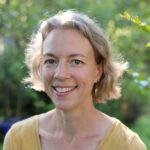 Dr. Heidi Scott (she/her) is a Communications Associate who develops educational tools for SESYNC. She teaches at the University of Maryland as a Senior Lecturer in English, specializing in interdisciplinary environmental topics that span biology and literature. Her books, Chaos and Cosmos (2014) and Fuel: An Ecocritical History (2018), focus on microcosm models in poetry and empirical science, narrative meaning in eras of rupture and rapid change, and the literature of energy, especially petroculture versus renewable sources and their cultural and ontological effects. More recently, Heidi has written and directed short environmental films, including Landfill (2020), which imagines our 22nd century descendants digging down through the plastic “fossils” of our consume-and-waste culture, set against a futurist society designed around biomimicry and interspecies equality. She is presently working on an essay on the Dupont Chemical Company’s complex legacy in the state of Delaware.
Dr. Heidi Scott (she/her) is a Communications Associate who develops educational tools for SESYNC. She teaches at the University of Maryland as a Senior Lecturer in English, specializing in interdisciplinary environmental topics that span biology and literature. Her books, Chaos and Cosmos (2014) and Fuel: An Ecocritical History (2018), focus on microcosm models in poetry and empirical science, narrative meaning in eras of rupture and rapid change, and the literature of energy, especially petroculture versus renewable sources and their cultural and ontological effects. More recently, Heidi has written and directed short environmental films, including Landfill (2020), which imagines our 22nd century descendants digging down through the plastic “fossils” of our consume-and-waste culture, set against a futurist society designed around biomimicry and interspecies equality. She is presently working on an essay on the Dupont Chemical Company’s complex legacy in the state of Delaware.
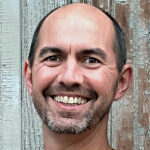 Dr. Russell Shaffer (he/him) (M.F.A., Sarah Lawrence College; Ph.D., University of South Dakota) earned his Ph.D. in literary studies with an emphasis in fiction. His dissertation explored historical and wartime literature, centering specifically on civilian life in California during World War II. He currently works for the University of Nebraska–Lincoln, doing video production, graphic design, and storytelling for the university’s Institute of Agriculture and Natural Resources, his main focus being community development in rural Nebraska. During his downtime, he enjoys kayaking and camping with his family.
Dr. Russell Shaffer (he/him) (M.F.A., Sarah Lawrence College; Ph.D., University of South Dakota) earned his Ph.D. in literary studies with an emphasis in fiction. His dissertation explored historical and wartime literature, centering specifically on civilian life in California during World War II. He currently works for the University of Nebraska–Lincoln, doing video production, graphic design, and storytelling for the university’s Institute of Agriculture and Natural Resources, his main focus being community development in rural Nebraska. During his downtime, he enjoys kayaking and camping with his family.
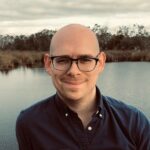 Weston Twardowski is a scholar and artist with an extensive background in non-profit management and community engagement. A graduate of Northwesterns Interdisciplinary PhD in Theatre and Drama, he is currently the Program Manager of the Diluvial Houston Initative at Rice University, an Andrew W. Mellon foundation supported project researching urban adaptation through the arts and humanities in Houston, Texas. In addition to his role at Rice creating environmental arts initatives and building community partnerships, he also teaches courses in both the theatre and environmental studies programs. His current research focuses on post-Katrina New Orleans and the role of performance in civic adaptation, racial and environmental justice advocacy, and the creation of networks across disparate organizations and populations. His scholarship examines performance and urbanism, environmental justice, the environmental humanities, especially in a Southern US context, and has been published in TDR: The Drama Review, Theatre Journal, Theatre History Studies, and Ecumenica among other journals. As an artist, he has worked as a professional director, dramaturge, and actor. He co-founded Third Culture Theatre in Los Angeles where he serves as literary manager. He has a passion for developing new works, especially those that address social injustice and issues related to environmentalism and climate justice.
Weston Twardowski is a scholar and artist with an extensive background in non-profit management and community engagement. A graduate of Northwesterns Interdisciplinary PhD in Theatre and Drama, he is currently the Program Manager of the Diluvial Houston Initative at Rice University, an Andrew W. Mellon foundation supported project researching urban adaptation through the arts and humanities in Houston, Texas. In addition to his role at Rice creating environmental arts initatives and building community partnerships, he also teaches courses in both the theatre and environmental studies programs. His current research focuses on post-Katrina New Orleans and the role of performance in civic adaptation, racial and environmental justice advocacy, and the creation of networks across disparate organizations and populations. His scholarship examines performance and urbanism, environmental justice, the environmental humanities, especially in a Southern US context, and has been published in TDR: The Drama Review, Theatre Journal, Theatre History Studies, and Ecumenica among other journals. As an artist, he has worked as a professional director, dramaturge, and actor. He co-founded Third Culture Theatre in Los Angeles where he serves as literary manager. He has a passion for developing new works, especially those that address social injustice and issues related to environmentalism and climate justice.
Job Market & Postdoc Applications
Thursday, July 28
5pm Pacific Time / 8pm Eastern Time
Via Zoom
Please join us on Zoom for the second workshop in our 2022 series of professional development workshops for ASLE graduate students. In this workshop, new faculty and postdoctoral fellows will discuss their strategies and documents for applications.
Moderated by Lisa Fink, ASLE Senior Graduate Student Liaison.
Featured Guests:
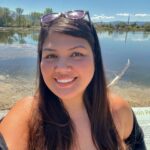 Rina Garcia Chua (she/her) is an incoming Jack and Doris Shadbolt Fellow in the Humanities at Simon Fraser University. She completed her PhD in Interdisciplinary Studies from the University of British Columbia Okanagan. She is the editor of the first anthology of Philippine ecopoetry, Sustaining the Archipelago, which was published with the University of Santo Tomas Publishing House in 2018 and is co-editor of Empire and Environment: Ecological Ruin in the Transpacific, forthcoming with the University of Michigan Press in October 2022. Rina is also the co-diversity officer for the Association for the Study of Literature and the Environment (ASLE), and poetry editor of Tiger Moth Review in Singapore and The Goose: A Journal of Arts, Environment, and Culture in Canada.
Rina Garcia Chua (she/her) is an incoming Jack and Doris Shadbolt Fellow in the Humanities at Simon Fraser University. She completed her PhD in Interdisciplinary Studies from the University of British Columbia Okanagan. She is the editor of the first anthology of Philippine ecopoetry, Sustaining the Archipelago, which was published with the University of Santo Tomas Publishing House in 2018 and is co-editor of Empire and Environment: Ecological Ruin in the Transpacific, forthcoming with the University of Michigan Press in October 2022. Rina is also the co-diversity officer for the Association for the Study of Literature and the Environment (ASLE), and poetry editor of Tiger Moth Review in Singapore and The Goose: A Journal of Arts, Environment, and Culture in Canada.
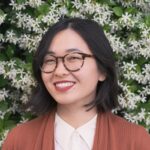 Heidi Amin-Hong (she/her) is Assistant Professor of English at the University of California, Santa Barbara. Her research and teaching explore Asian American and Pacific Islander cultures shaped by US imperialism and militarism, uneven global capitalist development, and environmental transformation. Her current book project examines the Vietnam War as a global event, which created an environmental legacy that continues to inflect Asian diasporic and Pacific Islander literature and visual culture today. Her writing has also been published or is forthcoming in Verge: Studies in Global Asias, ISLE: Interdisciplinary Studies in Literature and Environment, and others.
Heidi Amin-Hong (she/her) is Assistant Professor of English at the University of California, Santa Barbara. Her research and teaching explore Asian American and Pacific Islander cultures shaped by US imperialism and militarism, uneven global capitalist development, and environmental transformation. Her current book project examines the Vietnam War as a global event, which created an environmental legacy that continues to inflect Asian diasporic and Pacific Islander literature and visual culture today. Her writing has also been published or is forthcoming in Verge: Studies in Global Asias, ISLE: Interdisciplinary Studies in Literature and Environment, and others.
 Davy Knittle (he/they) is an HMEI/Princeton Mellon Fellow in Architecture, Urbanism, and the Environment at Princeton University. In January 2023, he will begin as Assistant Professor of English at the University of Delaware. Davy works at the intersection of urban studies, the environmental humanities, and queer and trans studies. Davy’s scholarship has appeared recently or is forthcoming in GLQ: A Journal of Lesbian and Gay Studies, ISLE: Interdisciplinary Studies in Literature and Environment, Environment and Planning D: Society and Space, and Feminist Formations.
Davy Knittle (he/they) is an HMEI/Princeton Mellon Fellow in Architecture, Urbanism, and the Environment at Princeton University. In January 2023, he will begin as Assistant Professor of English at the University of Delaware. Davy works at the intersection of urban studies, the environmental humanities, and queer and trans studies. Davy’s scholarship has appeared recently or is forthcoming in GLQ: A Journal of Lesbian and Gay Studies, ISLE: Interdisciplinary Studies in Literature and Environment, Environment and Planning D: Society and Space, and Feminist Formations.
 Rebecca S. Oh (she/her) is Assistant Professor of English at the University of Illinois. Her current book project, States of Failure, examines contradictory forms of the postcolonial state that are imagined in the wake of environmental harms in South Asia, Africa, and the Pacific. She argues that the state must be understood as a multitudinous form and that, far from being only an invitation to negative critique, state failure and negligence also generate demands for new and better states. She is in the early stages of a second project on genre and infrastructure in the global South and has published new work on apocalyptic realism. Her work has appeared or is forthcoming in Interventions: International Journal of Postcolonial Studies, Modern Fiction Studies, ariel: A Review of International English Literature, ISLE: Interdisciplinary Studies in Literature and Environment, and the edited collection Days of Futures Past.
Rebecca S. Oh (she/her) is Assistant Professor of English at the University of Illinois. Her current book project, States of Failure, examines contradictory forms of the postcolonial state that are imagined in the wake of environmental harms in South Asia, Africa, and the Pacific. She argues that the state must be understood as a multitudinous form and that, far from being only an invitation to negative critique, state failure and negligence also generate demands for new and better states. She is in the early stages of a second project on genre and infrastructure in the global South and has published new work on apocalyptic realism. Her work has appeared or is forthcoming in Interventions: International Journal of Postcolonial Studies, Modern Fiction Studies, ariel: A Review of International English Literature, ISLE: Interdisciplinary Studies in Literature and Environment, and the edited collection Days of Futures Past.
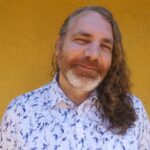 Daniel Lanza Rivers (they/them) is an Assistant Professor of American Studies & Literature at San José State University,where they serve as Director of the Martha Heasley Cox Center for Steinbeck Studies. Daniel teaches undergraduate and graduate courses in environmental humanities, U.S. literature, cultural studies, and human-animal studies. Their current book project explores the ways that settler speculations about California’s “natural” state have shaped the region’s environments, economies, and social politics since colonization. Daniel’s writing has appeared, or is forthcoming, in Terrain.org, American Quarterly, Apogee, Joyland, Boom: a journal of California, the Steinbeck Review, the Journal of Transnational American Studies, and Women’s Studies, where they edited the special issue “Futures of Feminist Science Studies.”
Daniel Lanza Rivers (they/them) is an Assistant Professor of American Studies & Literature at San José State University,where they serve as Director of the Martha Heasley Cox Center for Steinbeck Studies. Daniel teaches undergraduate and graduate courses in environmental humanities, U.S. literature, cultural studies, and human-animal studies. Their current book project explores the ways that settler speculations about California’s “natural” state have shaped the region’s environments, economies, and social politics since colonization. Daniel’s writing has appeared, or is forthcoming, in Terrain.org, American Quarterly, Apogee, Joyland, Boom: a journal of California, the Steinbeck Review, the Journal of Transnational American Studies, and Women’s Studies, where they edited the special issue “Futures of Feminist Science Studies.”
Public Humanities
Watch the recording of this session:
May 19, 2022
10:00 AM in Pacific Time (US and Canada)
Via Zoom
Please join us virtually for the first of three professional development workshops for ASLE graduate students in 2022. Our first installment will focus on Public Humanities.
Graduate students will hear from other graduate students and early-career faculty about the challenges and rewards of developing such projects, funding opportunities, and suggestions for creating public humanities projects.
Moderated by Lisa Fink, ASLE Senior Graduate Student Liaison.
Featured Guests/Projects:
- April Anson, Cassie Galantine, Shane Hall, Alexander Menrisky, & Bruno Seraphin: “Against the Ecofascist Creep” | launching Thursday, May 19
- Mika Kennedy, “Exiled to Motown” | https://exiledtomotown.org
- Jack Kredell and Chris Lamb, “Storying Extinction: Responding to the Loss of North Idaho’s Mountain Caribou” | https://cdil.lib.uidaho.edu/storying-extinction/
- Celeste Mari Williams, “Queens of Insect Purgatory”: A Play Reading and Panel Discussion with the Woodland Park Zoo, Seattle, WA | https://youtu.be/o4bjoMbK29Y
Bios
Dr. April Anson is an Assistant Professor of Public Humanities at San Diego State University, core faculty for the Institute for Ethics and Public Policy, and affiliate faculty in American Indian Studies. Her research explores the historical and ongoing connections between climate change, white supremacy, and the American environmental imagination while also attending to Indigenous environmental justice traditions that eclipse those relations. Dr. Anson was a Mellon postdoctoral fellow at the University of Pennsylvania with the Penn Program in Environmental Humanities and her work has appeared or is forthcoming in boundary 2, Resilience, Environmental History, Western American Literature, and others. In all, she remains committed to anti-racist and anti-colonial knowledge production and social movements.
Cassie Galantine is currently a doctoral candidate in the University of Oregon English department. She holds a Master’s degree in English from Northern Arizona University. She is interested in the intersection of environmental justice, medical humanities, and critical race and ethnic studies in U.S. literature and popular culture. Specifically, her current research examines representations of dirt, disease, and racial discourses of hygiene in twentieth-century multiethnic U.S. women’s working-class literature.
Dr. Shane Hall studies how the relationships between racism, militarism, and climate change are represented in U.S. literature and popular culture. He is currently working on a book about the cultural construction of “environmental” and “climate” migrants, and how the figure of these migrants figures centrally in militarized narratives of climate futures. At Salisbury University, Dr. Hall teaches various courses on environmental justice, the environmental humanities, and field studies of the Chesapeake.
Jack Kredell is a PhD student in Environmental Science at the University of Idaho’s College of Natural Resources. Areas of interest include environmental history and settler ecological relationships, critical animal studies, climate change, and geospatial narrative. He is currently at work on several GIS-based archival projects that use collaborative storytelling to document and explore environmental change within Idaho and the Western United States.
Chris Lamb is a recent graduate of the English MA program at the University of Idaho where he focused on studies of literature and the environment and environmental humanities more broadly. His research interests include philosophies of space, environmental ethics, extinction studies, critical cartography, digital humanities, and environmental justice. He currently lives in Corvallis, OR.
Dr. Alexander Menrisky is an Assistant Professor in English at the University of Connecticut. Previously, he taught in the Department of English and Communication and the Honors College at the University of Massachusetts Dartmouth and the Departments of English and Writing, Rhetoric, and Digital Studies at the University of Kentucky. He is the author of Wild Abandon: American Literature and the Identity Politics of Ecology (Cambridge University Press, 2021). He is currently working on a second book project, tentatively entitled Everyday Ecofascism, which considers casual and systemic, rather than intentional and overt, expressions of white-supremacist, anti-Indigenous, and anti-immigrant thinking in environmental art and politics. His work has also appeared or is forthcoming in Criticism: A Quarterly for Literature and the Arts, ISLE: Interdisciplinary Studies in Literature and Environment, Mosaic, GLQ: A Journal of Lesbian and Gay Studies, Resilience, Edge Effects magazine, and elsewhere. He also curates the Association for the Study of Literature and Environment’s Teaching Resources Database (submit today!).
Bruno Seraphin is a PhD candidate in sociocultural anthropology at Cornell University. His research focuses on environmental and climate justice, anti-colonial social movements, and community video production. He lives in Karuk territory in northern California and conducts research on the intersections of wildfire policy and settler colonialism. A settler scholar who grew up on Nipmuc lands, Bruno is an award-winning filmmaker with a BFA in Film and Television from New York University. He can be contacted at bs772@cornell.edu.
Celeste Mari Williams is a playwright and TV animation professional transitioning to a career in conservation. Her ability to communicate and collaborate with people across multiple disciplines champions inclusion, respect, and equity. Celeste’s projects have interwoven arts, science, and social justice to cultivate empathy and emotional connection with humans and wildlife. She has engaged audiences with her recent plays and multimedia projects, which drew parallels between the language and perceptions of “invasive” species and demonizing rhetoric of historically excluded communities.
